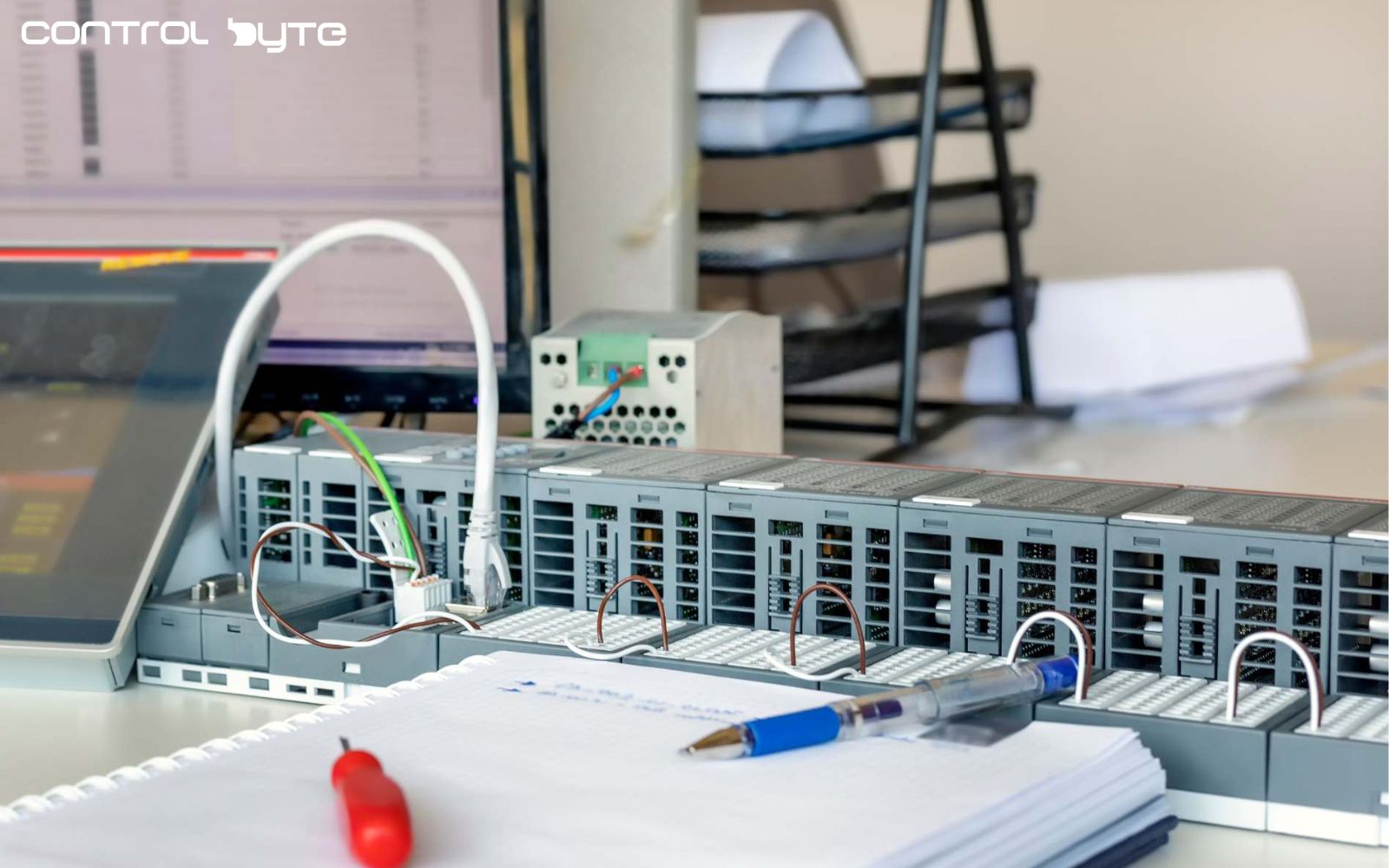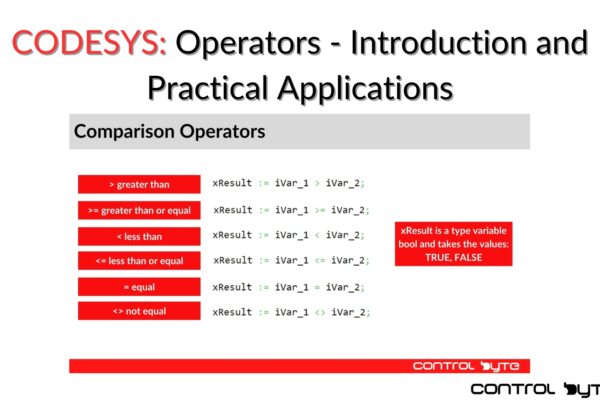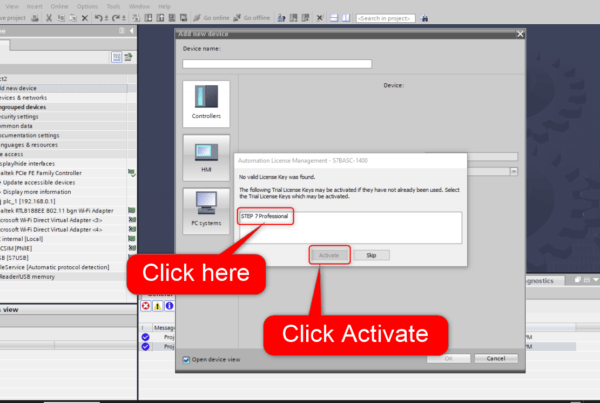Working as a PLC programmer/automation engineer is one of the most attractive and well-paid professions in the engineering field. By securing a job in PLC programming, you gain the opportunity to design advanced control and monitoring systems in strategic and important industries (such as oil, gas, and steel) — all while improving your standard of living with a high salary.
But let’s assume you are a recent graduate or someone without relevant PLC experience. To qualify for these positions, it’s often required to have at least two years of experience in the field.
Is a Career in Automation Engineering Within Your Reach?
ControlByte’s mission is to show you that getting a job in the automation industry isn’t hard! Automation engineers can expect excellent earnings! Many people give up after being rejected a few times. They settle for unsatisfying jobs and abandon their dreams. But for someone like you, who believes in the real value of work in this field and wants to become a PLC programmer, the path to success is wide open.
This mindset was what helped me find the perfect job as an automation engineer (or PLC programmer), even when I didn’t have much experience in the field.
I now have over seven years of experience designing control systems for various industries, such as packaging machinery, building automation, and power systems automation. After just two years in my first role, I advanced to regional technical advisor, which gave me the privilege of working with some of the most talented PLC programmers and automation engineers from around the world. Most of them brought extensive, years-long experience in the field.
As I advanced in my career, it occurred to me that I could help others achieve similar success, regardless of their current experience level. This realization inspired me to create the ControlByte platform.
The YouTube channel I started with my colleague Kamil is now one of the most-watched channels on industrial automation in Poland. We have also created an extensive video library filled with practical PLC programming courses—a library that other industrial automation experts describe as one of the “most effective and practical training courses.”
As you can guess, most of the available job offers required real experience in this field. But I didn’t give up, because I couldn’t. I had invested several years in high school and college to become a PLC programmer. This had been my dream job for so long that I couldn’t abandon this path halfway.
Recently, I have been receiving many questions, both online and offline, asking:
How to become a plc programmer without any skills and qualifications in this field?
While I prefer to answer every incoming question personally, my schedule has been extremely tight lately, and unfortunately, I simply can’t respond to every inquiry.
Therefore, I decided to share some tips on achieving success, both as someone who once searched for a job in this field and as an employer who reviews resumes, interviews candidates, and hires PLC programmers for various projects.
So, let’s get started!
Differentiate Yourself in the PLC Programming Field by Learning from Experts
When I graduated with an engineering degree specializing in the control of machinery, vehicles, and devices, I quickly realized that many people had similar qualifications.
So, even though I wasn’t in a great financial situation back then, I invested most of my earnings in various vocational training programs, which I believed would bring me closer to my ultimate goal: becoming a programming device specialist.
Most recent graduates I knew didn’t participate in any additional training outside of college, and if they did, they limited themselves to one or two courses. I completed eight different courses covering common programming languages, WinCC, monitoring systems, Profibus, and Ethernet. This set me apart from others with similar educational backgrounds.
Listing these training courses on my resume immediately signaled to employers that I was different from other recent graduates and that hiring me could save them the effort of training someone from scratch. They knew they’d get someone already trained with the necessary expertise for the role.
As an employer, I now see this from the other side of the table. Most resumes I see either lack sufficient training courses or list only one or two. When I find a resume with seven or eight practical training courses, I’m far more likely to consider that candidate. It shows they understand the field of automation and are dedicated to developing in the role. They’ve invested time and money to reach their goal, and every employer values a dedicated worker.

Market Yourself as a Valuable Employee
The best company executives are always looking for someone who can add value to their automation system or manufacturing processes. If they find someone with the programming skills needed to be effective and valuable for their organization, they don’t hesitate to hire that candidate.
But you need to show them how good you are. If they don’t know your skill set, how can they be sure you’ll be a valuable addition to their team?
It’s like having the best product in the world but doing no marketing for it, then expecting people to come and buy it. In this case, no one buys your great product simply because they’re unaware it exists! You need to have the ability and willingness to sell yourself in the best possible way and demonstrate to employers that you can add value to their control engineering team. If you don’t promote yourself, who will?
One of the best and most powerful tools you can use to showcase your skills and qualifications is LinkedIn. Today, most international and local companies use LinkedIn when looking to hire new employees, including for PLC programming jobs. Studies show that professionals with a well-designed LinkedIn profile have more job opportunities than others. If you’re a professional without a well-structured LinkedIn profile, you’re missing out on a lot of opportunities.
Be Ready to Make Sacrifices
When I was job hunting, I looked for opportunities every single day, both online and offline. I sent my resume to every good company that was hiring. Some companies weren’t even located in my city, so sometimes I had to take a six- or seven-hour bus ride (because I couldn’t afford my own car).
The scenario usually went like this: the company’s receptionist would call and tell me they liked my resume and ask if I could come in for an interview the next day. I always replied, “I’ll be there!” and would then take the bus the previous evening, arriving in the morning for a short, fifteen-minute (or even shorter) interview.
If you really want to find a job, you have to be willing to do whatever it takes. Some people don’t even take the time to fill out an online application for a new job. Then they wonder why they can’t find one! Their excuse is, “I’m so busy with my current job or other things in my life. I can’t find the time to look for new opportunities.” My response is, “No, you’re not too busy. There’s always time to do what you want and what you need to advance your career.”
Offer Something Hard to Ignore
Once, I asked for advice in an interview, saying, “In your opinion, given the skills in my resume, what’s the best strategy for me to find a job?” I learned many valuable lessons this way. For example, in one interview, the CEO I was speaking with said, “Offer something hard to ignore, like saying you’ll work for six months for free.”
At first, that didn’t make sense to me, but I thought, “What the heck, I’ve tried many things so far; let’s try this too.”
Fortunately, the manager of that company was a good guy, and they started paying me after just two months because they were pleased with my work. You could also consider making this kind of offer. Don’t act like most people. Be creative! I’m sure you can find something to offer that’s hard to ignore.

Don’t Expect to Start Off at a Desk
One mistake many young engineers make is expecting to start their first job as a designer or programmer at a desk simply because they have an engineering degree. This is not only uncommon; it’s also not ideal. If you’re hired as a beginner and asked to do practical work (like construction-related tasks), embrace the opportunity — it’s incredibly valuable.
When I started as an automation engineer, I spent about eight months in challenging conditions. I was wiring control panels installed 10 meters above ground on cranes and wiring in factory basements.
Looking back, those days provided some of my best educational experiences and broadened my understanding of design and programming. Even now, though I’m no longer a junior engineer, I still take on this kind of work when needed.
My advice? When you’re asked to do this kind of tough work, don’t be lazy. Think of it as a learning experience that will lead you to become a serious and professional elite automation engineer.
I could list more tips, but I don’t want to overwhelm you. So many blog posts have long lists of advice, but they’re hard to remember and apply in real situations.
I can tell you that if you want to break into the world of automation with no professional experience, you need to prove to employers that you’ll bring value to their company. No one cares about how good of a student you were. All that matters is if you can add real value. Convince them that you’re willing to make sacrifices, ready to get your hands dirty, eager to learn. Take it from someone who’s done it — you’ll have a much better chance of getting hired!
Now it’s your turn. Get out there and find a job as a PLC programmer!
I’d love to hear about your successes or lessons learned during an interview. Share them with me and the ControlByte team in the comments below!




